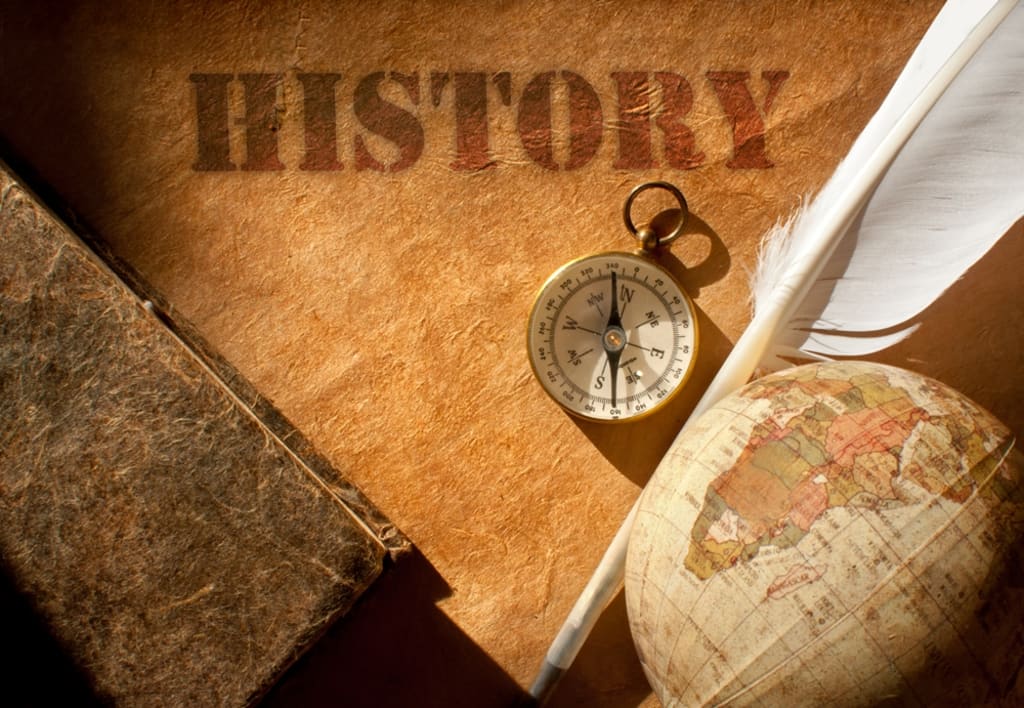The History of History
History has got a history as well. Read this amazing article to warm up your brain.

The history of history is the study of the development of the discipline of history over time. The origins of history can be traced back to ancient civilizations such as Egypt, Greece, and Rome, where historians documented important events and recorded the deeds of rulers and other important figures. In this article, we will explore the history of history from its ancient roots to the modern era.
Ancient History
The ancient Greeks were the first to develop a critical approach to history. Herodotus, known as the "father of history," wrote the first comprehensive history of the ancient world, The Histories. He believed that history should be based on eyewitness accounts and that the historian should investigate the reliability of sources.
Thucydides, another Greek historian, wrote about the Peloponnesian War, documenting events and offering insights into the motivations of the participants. He is considered one of the greatest historians of the ancient world.
The Roman historian Livy wrote a comprehensive history of Rome, Ab Urbe Condita. He believed that history should serve as an example to future generations and that the purpose of history was to provide moral guidance.
Medieval and Renaissance History
During the medieval period, history was primarily focused on religious events and the deeds of rulers. The Christian Church played a central role in shaping historical narratives, and many of the great works of medieval history were written by monks.
During the Renaissance, humanist scholars began to take a more critical approach to history. They emphasized the importance of studying primary sources and developing a critical approach to interpreting historical events. The Italian historian Leonardo Bruni is credited with being one of the first humanist historians.
Enlightenment and Modern History
The Enlightenment period marked a significant shift in the study of history. Historians began to place more emphasis on the importance of reason and empirical evidence, and the study of history became more secular. The French philosopher Voltaire wrote a comprehensive history of the world, The Age of Louis XIV, in which he emphasized the importance of rational inquiry and critical analysis.
The modern era of history began in the 19th century, with the development of modern historical research methods. The German historian Leopold von Ranke is considered the father of modern history. He believed that history should be based on a critical analysis of primary sources, and that historians should strive for objectivity.
In the 20th century, history continued to evolve as historians developed new approaches to studying the past. The development of social history emphasized the importance of understanding the experiences of ordinary people, while the rise of postmodernism challenged traditional historical narratives and emphasized the importance of multiple perspectives.
Conclusion
The history of history is a fascinating subject that demonstrates the evolution of the discipline over time. From the ancient Greeks to the modern era, historians have developed new approaches to studying the past, and the study of history continues to evolve today. The discipline of history has played a critical role in shaping our understanding of the world, and it will undoubtedly continue to do so in the future.
As history has evolved, so too have the methods and techniques used to study it. Historians today use a wide range of approaches to study the past, including traditional archival research, oral history, and digital history.
Archival research involves the study of primary source documents such as letters, diaries, and government records. This approach has long been a cornerstone of historical research, and it remains an essential method for studying the past. However, historians today also use other techniques to supplement archival research.
Oral history involves the collection and analysis of firsthand accounts of past events. This approach is particularly useful for studying the experiences of marginalized groups and individuals whose voices may not have been well-represented in traditional archival sources.
Digital history is a relatively new approach to historical research that involves the use of digital tools and techniques to study the past. This can include the use of databases, data visualization tools, and digital archives to analyze and interpret historical data.
One of the most significant challenges facing historians today is the increasing digitization of historical sources. While digitization has made historical sources more accessible than ever before, it has also created new challenges for historians. For example, the sheer volume of digitized materials can be overwhelming, and the reliability of digital sources can be difficult to assess.
Another challenge facing historians is the increasing emphasis on interdisciplinary approaches to studying the past. Historians today are increasingly working with scholars from other fields, such as anthropology, sociology, and political science, to gain a more comprehensive understanding of the past.
In conclusion, the history of history is a fascinating subject that highlights the evolution of the discipline over time. From its origins in ancient civilizations to the modern era of digital history, the study of history has undergone significant changes and has played a critical role in shaping our understanding of the world. While historians today face new challenges, they continue to use a wide range of approaches to study the past and gain new insights into our shared human experience.
About the Creator
Sujan Paudel
I love to write. And in a hunt for a platform to express my feelings, I have arrived in Vocal Media. Let's see where this journey takes me from here.
Enjoyed the story? Support the Creator.
Subscribe for free to receive all their stories in your feed. You could also pledge your support or give them a one-off tip, letting them know you appreciate their work.






Comments
There are no comments for this story
Be the first to respond and start the conversation.